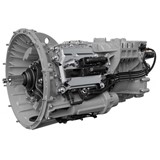The study, undertaken by Murdoch University researcher Dr Robert Wochesländer as part of his Masters in environmental science, said that with further development the strategy could see farmers get financially rewarded for the restoration of wetlands.
"Over the last 200 years or so there has been a great deal of degradation of wetlands in the south west of the state," Dr Wochesländer, who has a PhD in zoology, said.
"As a result we have seen habitat destruction, invasive species and water pollution all wreaking havoc in our wetlands and on farmland.
"But the Carbon Farming Initiative could bring a much-needed financial and environmental incentive for landowners to bring back the wetlands, even if it is just in small tracts of their lands."
Supervised by Professor Richard Harper, the Alcoa Chair in Sustainable Water Management at Murdoch University, the research concluded that although promising, more investigation was needed to find out exactly how much carbon could be stored in native plants and trees to pinpoint how the strategy could be a cost-effective form of greenhouse gas abatement.
"At present, no one will pay you for creating biodiversity but wetlands in WA are very valuable ecosystems which are important for conventional farming," Dr Wochesländer said.
"Not only do they provide habitat for a diverse range of plants and animals but they also provide protection against floods and help to improve water quality by filtering pollutants. It would be expected that less nutrients will move into rivers and estuaries where they cause problems."
The Carbon Farming Initiative passed the Federal Parliament in September and any offset projects established need to use methodologies approved by the Federal Government. Once established, these various projects can then be used by carbon producers to offset their emissions.
"If landowners are also given a financial incentive through the Carbon Farming Initiative to restore these habitats, the idea is that the restoration will also pay for itself. In some countries payments are received for improvements in biodiversity, and these may occur in Australia in the future," Dr Wochesländer said.
After analysing factors including topography, soil characteristics, vegetation composition, infrastructure and land ownership, Dr Wochesländer estimated that at least 15,000 hectares of land on the Swan Coastal Plain in the Peel Harvey region was suitable to be converted back to wetlands. This restoration would involve slowing the movement of water from the landscape and re-establishing native wetland vegetation.
Jan Star, Chairman of the Peel-Harvey Catchment Council said: "This is very exciting research that we hope will lead to incentives to retain and restore our wetland systems. These systems perform important ecosystem services and carbon storage is an important additional reason to halt their continuing destruction."












